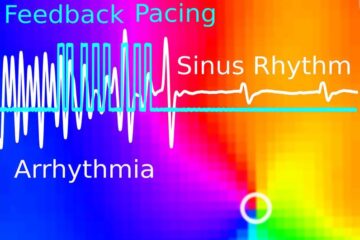Depression increases risk of Alzheimer's disease

The study involved 486 people age 60 to 90 who had no dementia. Of those, 134 people had experienced at least one episode of depression that prompted them to seek medical advice.
The participants were followed for an average of six years. During that time 33 people developed Alzheimer’s disease. People who had experienced depression were 2.5 times more likely to develop Alzheimer’s disease than people who had never had depression. The risk was even higher for those whose depression occurred before the age of 60; they were nearly four times more likely to develop Alzheimer’s than those with no depression.
“We don’t know yet whether depression contributes to the development of Alzheimer’s disease or whether another unknown factor causes both depression and dementia,” said study author Monique M.B. Breteler, MD, PhD, with the Erasmus University Medical Center in Rotterdam, the Netherlands. “We’ll need to do more studies to understand the relationship between depression and dementia.”
One theory was that depression leads to loss of cells in two areas of the brain, the hippocampus and the amygdala, which then contributes to Alzheimer’s disease. But this study found no difference in the size of these two brain areas between people with depression and people who had never had depression.
The study also assessed whether the participants had symptoms of depression at the start of the study. But those with depressive symptoms at the start of the study were not more likely to develop Alzheimer’s than those with no depression at the start of the study.
Media Contact
More Information:
http://www.aan.comAll latest news from the category: Health and Medicine
This subject area encompasses research and studies in the field of human medicine.
Among the wide-ranging list of topics covered here are anesthesiology, anatomy, surgery, human genetics, hygiene and environmental medicine, internal medicine, neurology, pharmacology, physiology, urology and dental medicine.
Newest articles

Wildfire danger to increase due to climate change
WSL Institute for Snow and Avalanche Research (SLF) researchers expect an elevated wildfire danger in the Alpine Foreland from 2040 onwards due to changing meteorological conditions. The danger currently remains…

Advanced Brain Science Without Coding Expertise
Researchers at Helmholtz Munich and the LMU University Hospital Munich introduce DELiVR, offering a new AI-based approach to the complex task of brain cell mapping. The deep learning tool democratizes…

Gentle defibrillation for the heart
Using light pulses as a model for electrical defibrillation, Göttingen scientists developed a method to assess and modulate the heart function. The research team from the Max Planck Institute for…





















